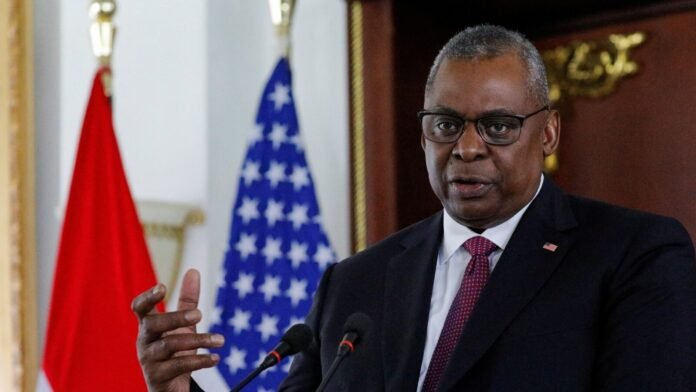In a dramatic escalation of tensions in the Middle East, the United States has launched a significant aerial offensive targeting Kataib Hezbollah, an Iranian-backed militia group operating in Iraq and Syria. The move underscores growing concerns about Iran’s destabilizing activities in the region and the ongoing struggle to contain the influence of proxy militias aligned with Tehran.
Kataib Hezbollah, translated as the “Brigades of the Party of God,” is a Shiite militia group that emerged in Iraq following the US-led invasion in 2003. Initially formed to resist the American occupation, the group has since evolved into a powerful paramilitary force aligned with Iran and its regional agenda. Kataib Hezbollah has been implicated in a range of activities, including attacks on US and coalition forces, as well as targeting Iraqi civilians and government officials perceived as aligned with Western interests.
The US decision to launch an aerial offensive against Kataib Hezbollah comes amid a series of provocations and attacks attributed to the militia group. In recent months, Kataib Hezbollah has been accused of carrying out rocket attacks targeting US diplomatic facilities and military bases in Iraq, as well as conducting cross-border operations into Syria in support of the Assad regime.
The US military’s decision to target Kataib Hezbollah marks a significant escalation in its efforts to counter Iranian influence in the region and protect American personnel and interests. The aerial offensive, which reportedly involved precision airstrikes on Kataib Hezbollah facilities and positions in Iraq and Syria, sends a clear message that the US is prepared to take decisive action to deter and disrupt Iran’s proxy networks.
However, the US airstrikes targeting Kataib Hezbollah have sparked controversy and raised concerns about the potential for escalation and unintended consequences. Critics argue that the airstrikes risk further inflaming tensions in an already volatile region and could provoke retaliatory attacks by Iranian-backed militias against US forces and allies in Iraq and elsewhere.
Moreover, the US airstrikes have drawn condemnation from Iran and its allies, who have accused the United States of aggression and violation of Iraqi sovereignty. Iran has vowed to retaliate against what it perceives as US provocations and has warned of the consequences of further escalation in the region.
The US military has defended its actions, asserting that the airstrikes targeting Kataib Hezbollah were conducted in self-defense and in response to ongoing threats posed by the militia group to US personnel and interests. US officials have emphasized that the airstrikes were proportional and aimed at deterring future attacks by Kataib Hezbollah and its affiliates.
The US offensive against Kataib Hezbollah underscores broader concerns about the influence of Iranian-backed militias in Iraq and the wider Middle East. Iran’s support for proxy groups like Kataib Hezbollah has long been a source of instability and conflict in the region, exacerbating sectarian tensions and undermining efforts to promote stability and reconciliation in countries such as Iraq and Syria.
The US airstrikes targeting Kataib Hezbollah also highlight the complex geopolitical dynamics at play in the Middle East, where competing regional powers vie for influence and control over strategic territories and resources. The conflict in Syria, in particular, has become a battleground for competing interests, with Iran and its proxies backing the Assad regime, while the United States and its allies support opposition groups seeking to overthrow the government.
In the wake of the US airstrikes, the situation in Iraq and Syria remains fluid and uncertain, with the potential for further escalation and violence. The targeting of Kataib Hezbollah is likely to reverberate throughout the region, affecting the dynamics of the ongoing conflicts in Iraq, Syria, and beyond.
As tensions continue to simmer, the United States and its allies face the challenge of navigating a delicate balance between deterring Iranian aggression and avoiding a wider conflict in the Middle East. The US airstrikes targeting Kataib Hezbollah underscore the complexities of managing regional rivalries and the risks of military escalation in a volatile and unpredictable environment.

